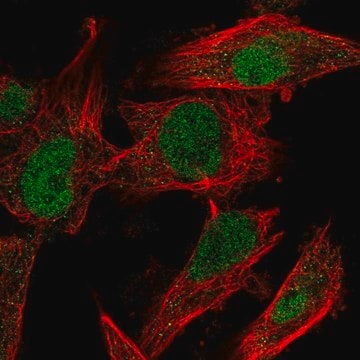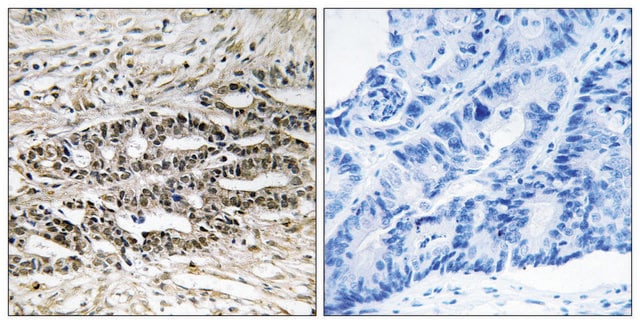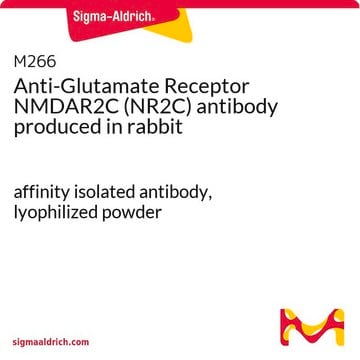M0445
Anti-MDMX antibody, Mouse monoclonal

clone MDMX-82, purified from hybridoma cell culture
Synonyme(s) :
Anti-HDMX, Anti-MDM4, Anti-p53 Binding Protein
About This Item
Produits recommandés
Source biologique
mouse
Niveau de qualité
Conjugué
unconjugated
Forme d'anticorps
purified immunoglobulin
Type de produit anticorps
primary antibodies
Clone
MDMX-82, monoclonal
Forme
buffered aqueous solution
Poids mol.
antigen ~80 kDa
Espèces réactives
human
Validation améliorée
recombinant expression
Learn more about Antibody Enhanced Validation
Concentration
~2 mg/mL
Technique(s)
immunocytochemistry: suitable
immunoprecipitation (IP): suitable
microarray: suitable
western blot: 1-2 μg/mL using total cell extract of HEK 293T cells transfected with human MDMX
Isotype
IgG1
Numéro d'accès UniProt
Conditions d'expédition
dry ice
Température de stockage
−20°C
Modification post-traductionnelle de la cible
unmodified
Informations sur le gène
human ... MDM4(4194)
mouse ... Mdm4(17248)
rat ... Mdm4(304798)
Catégories apparentées
Description générale
Spécificité
Application
Actions biochimiques/physiologiques
Forme physique
Stockage et stabilité
Clause de non-responsabilité
Not finding the right product?
Try our Outil de sélection de produits.
Produit(s) apparenté(s)
Code de la classe de stockage
10 - Combustible liquids
Classe de danger pour l'eau (WGK)
WGK 3
Point d'éclair (°F)
Not applicable
Point d'éclair (°C)
Not applicable
Équipement de protection individuelle
Eyeshields, Gloves, multi-purpose combination respirator cartridge (US)
Certificats d'analyse (COA)
Recherchez un Certificats d'analyse (COA) en saisissant le numéro de lot du produit. Les numéros de lot figurent sur l'étiquette du produit après les mots "Lot" ou "Batch".
Déjà en possession de ce produit ?
Retrouvez la documentation relative aux produits que vous avez récemment achetés dans la Bibliothèque de documents.
Notre équipe de scientifiques dispose d'une expérience dans tous les secteurs de la recherche, notamment en sciences de la vie, science des matériaux, synthèse chimique, chromatographie, analyse et dans de nombreux autres domaines..
Contacter notre Service technique







